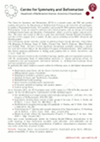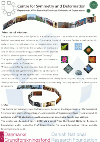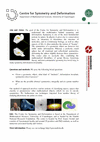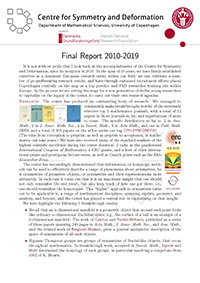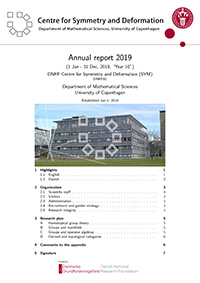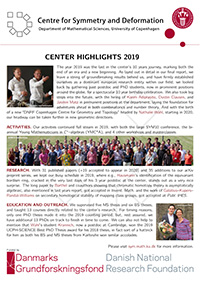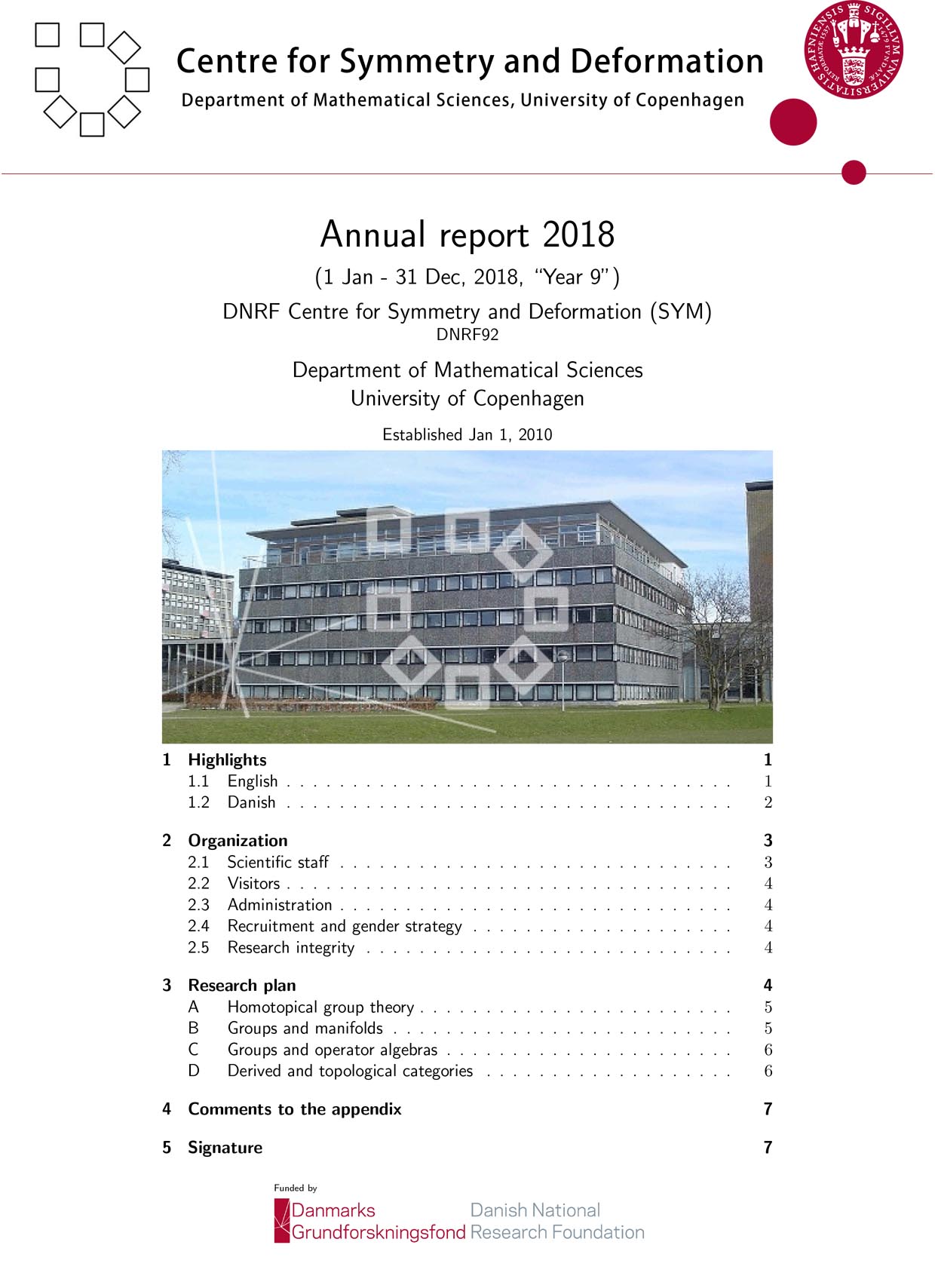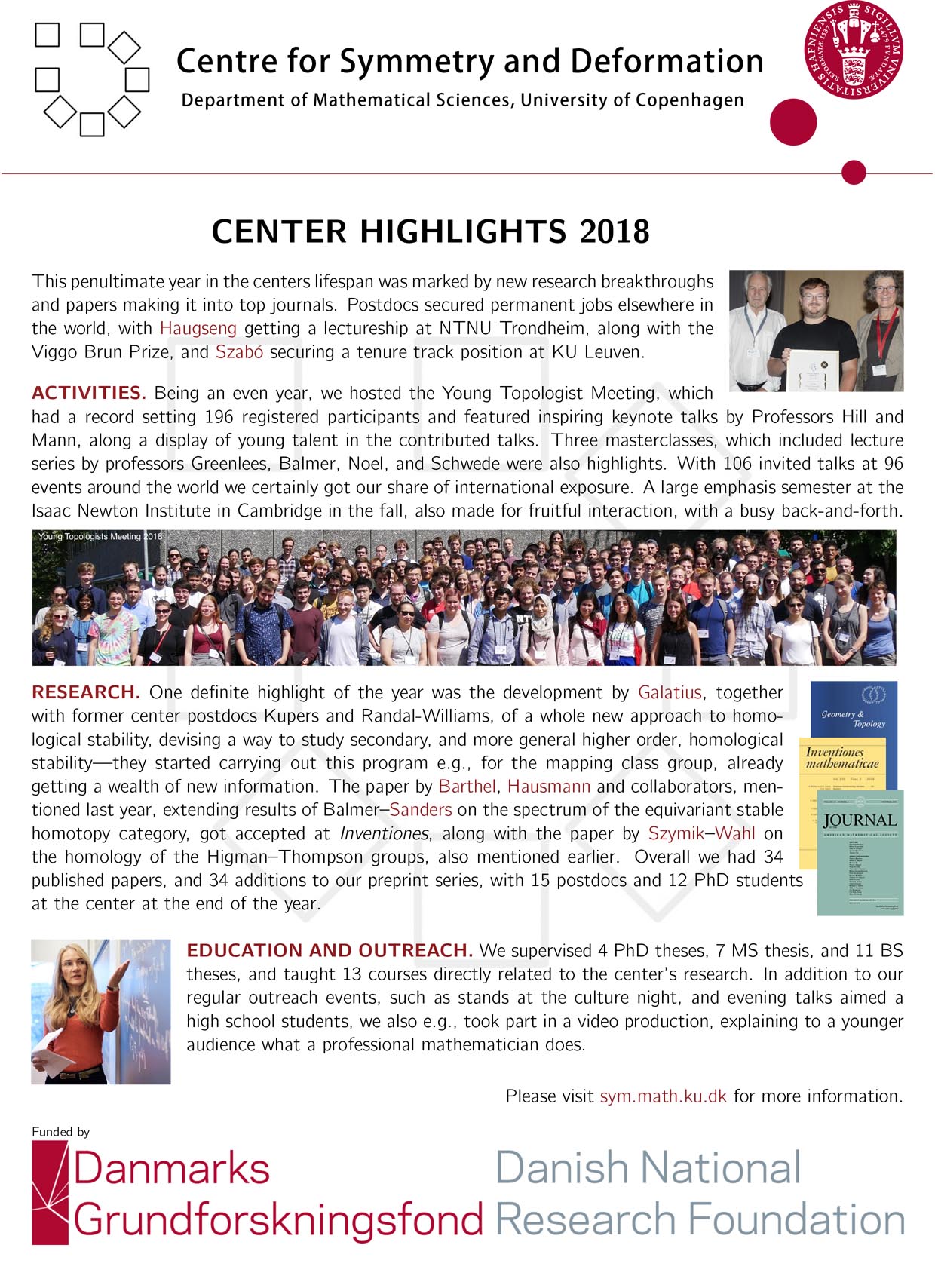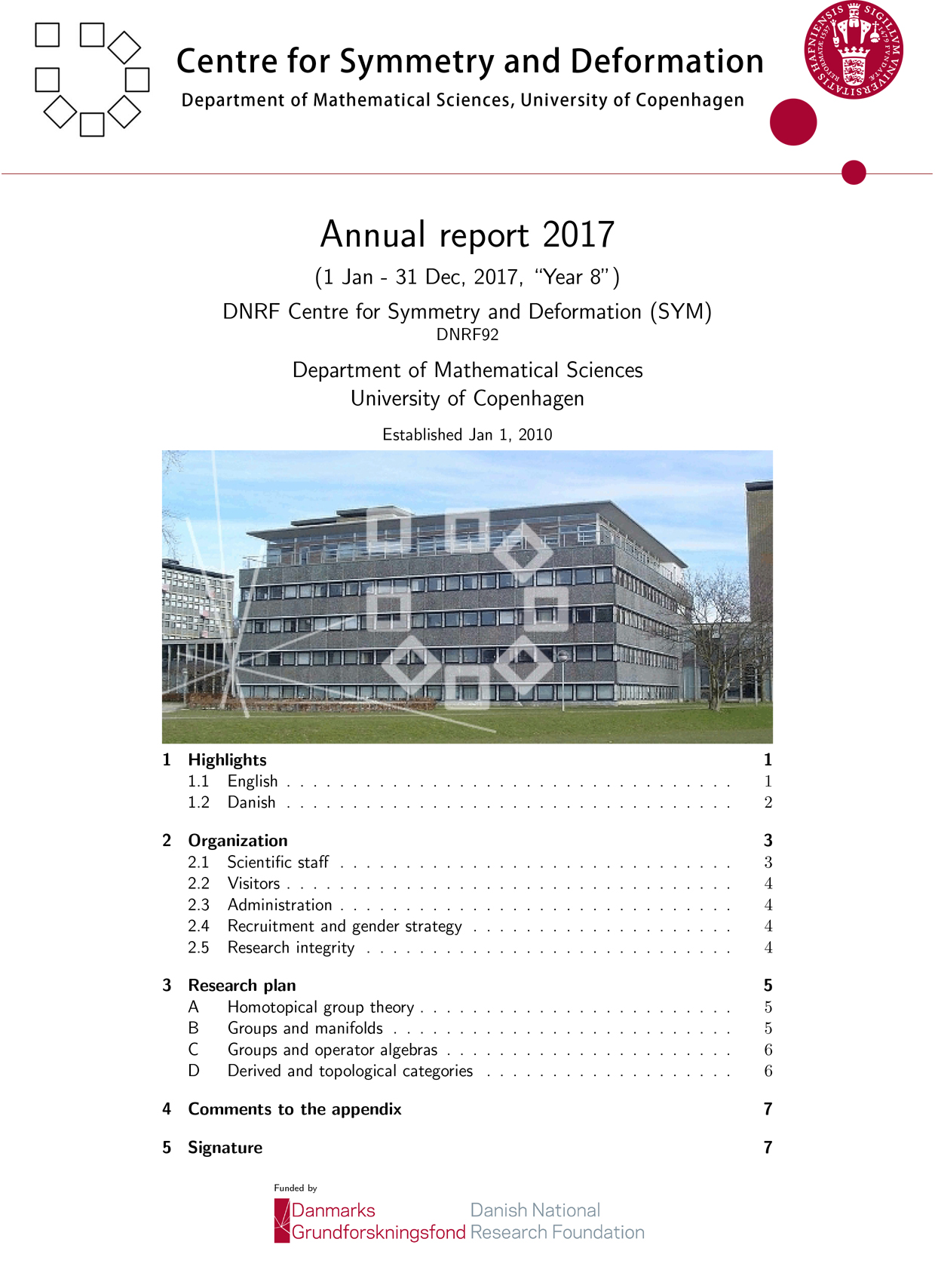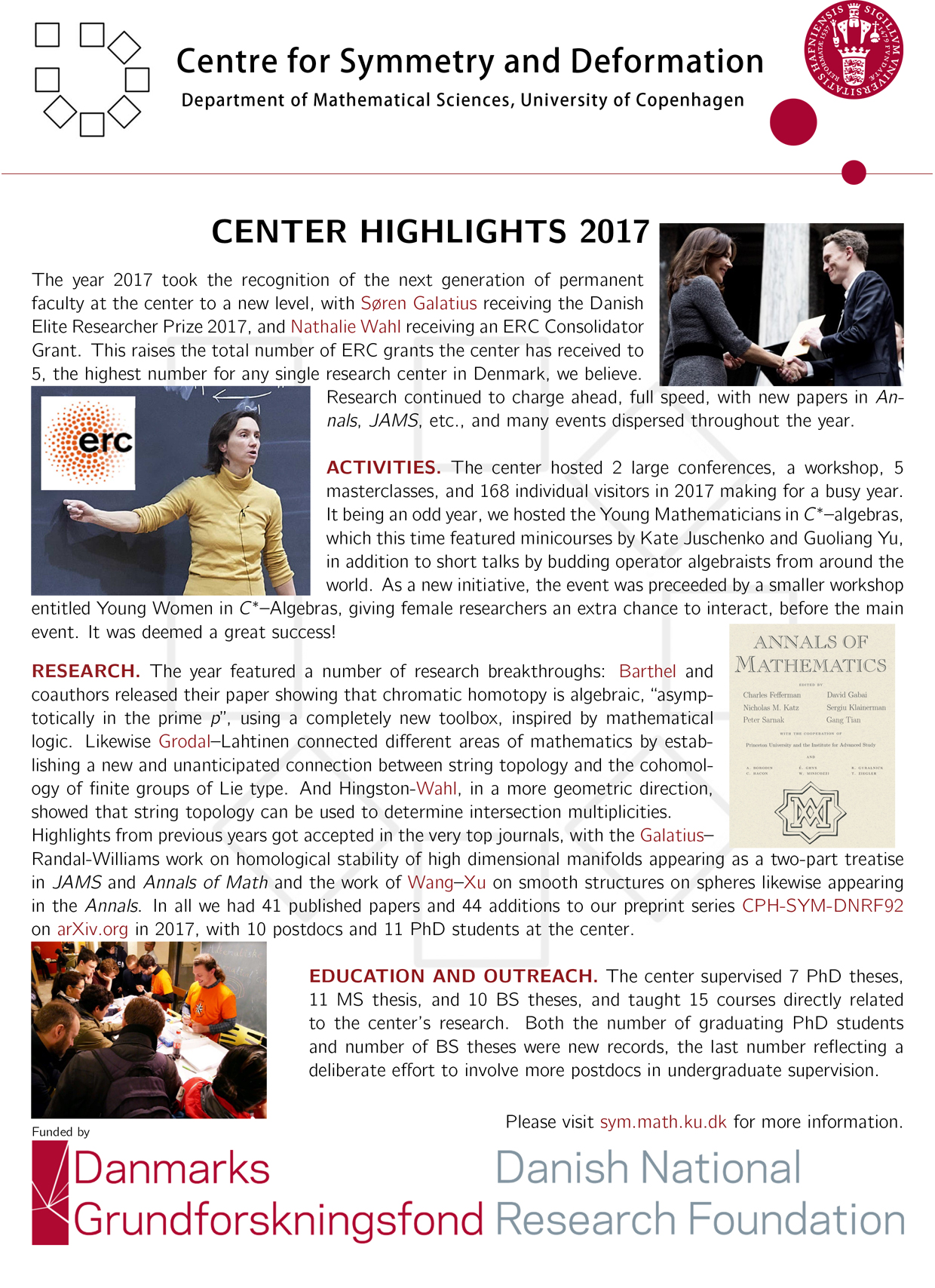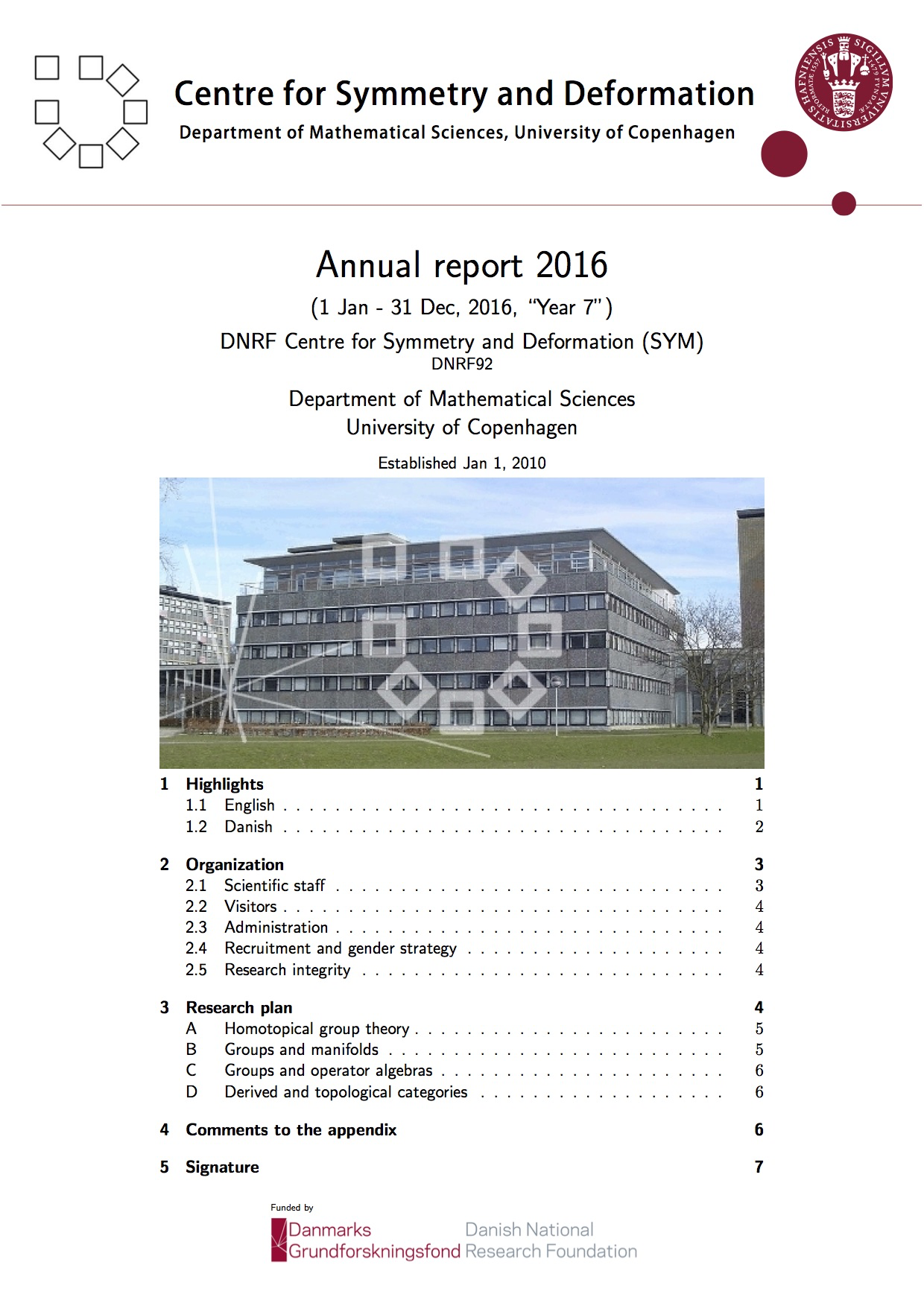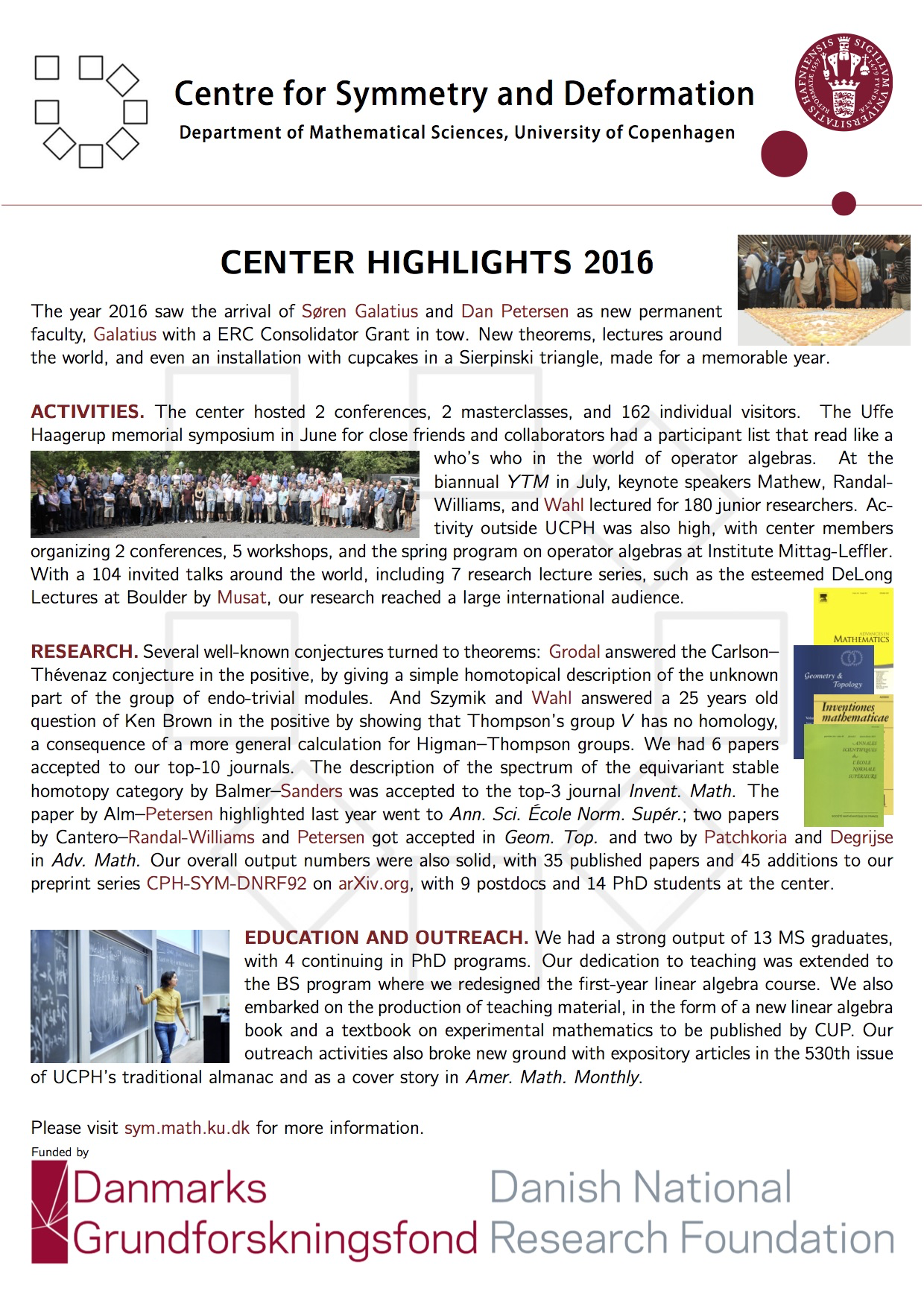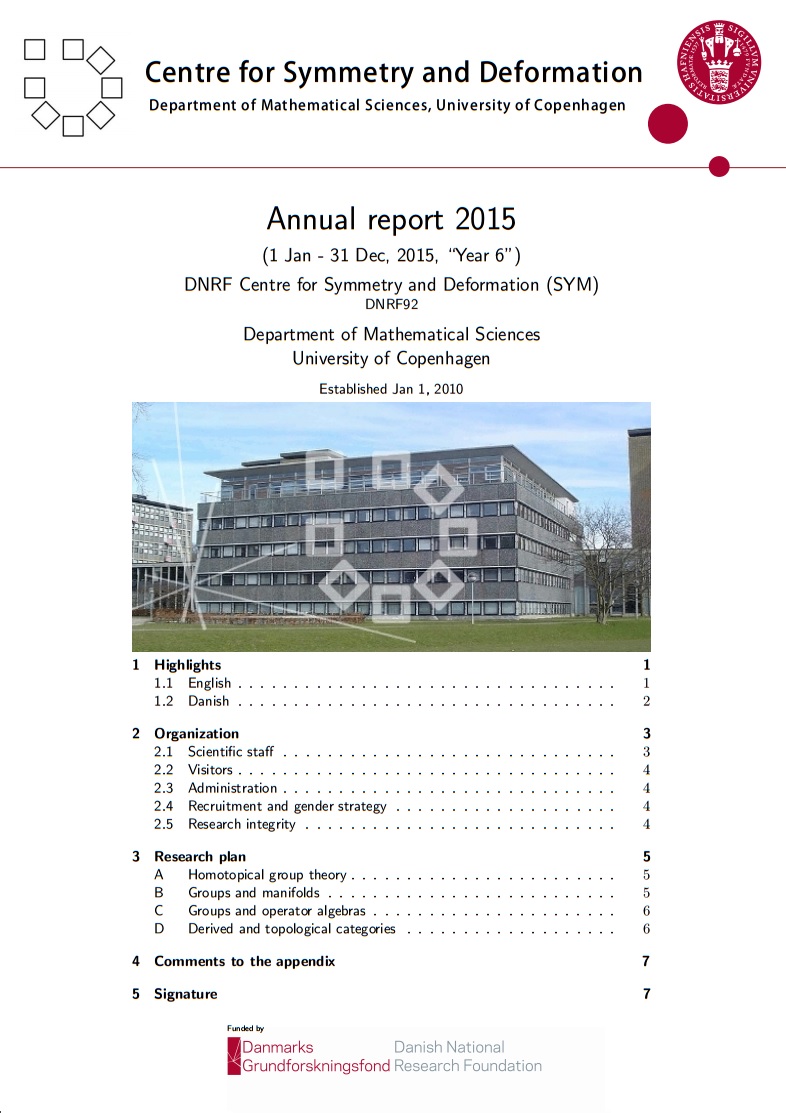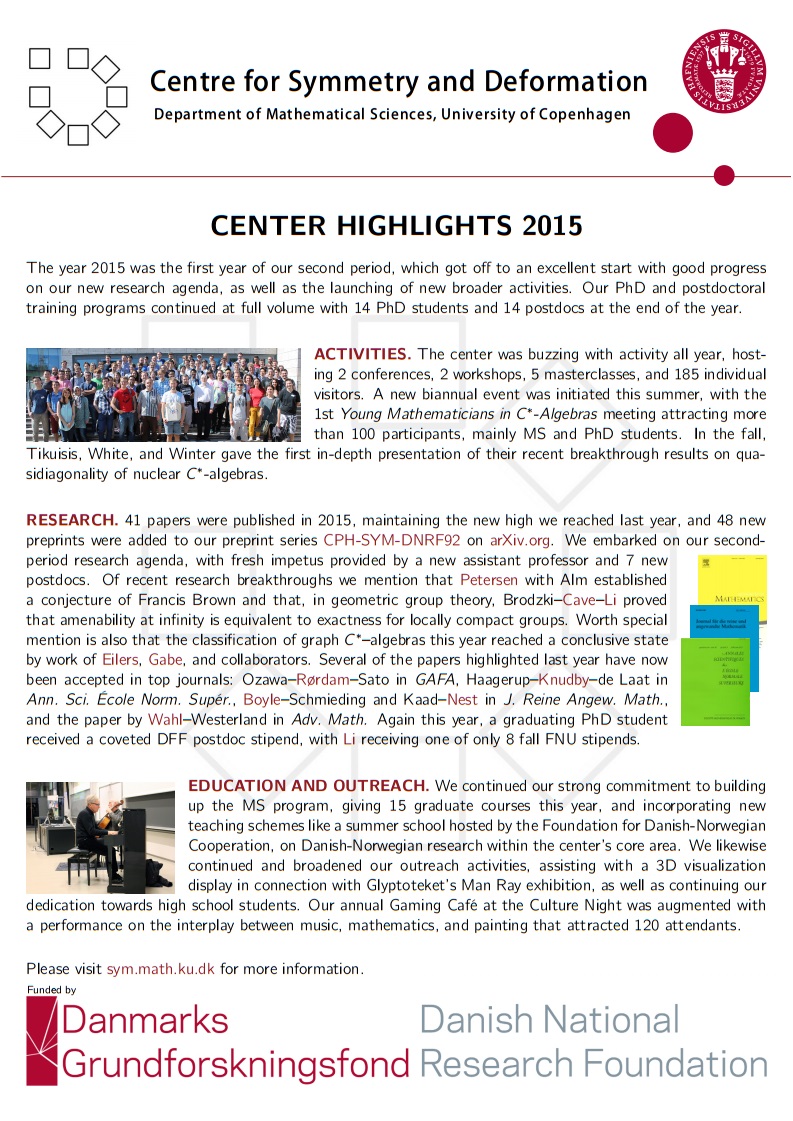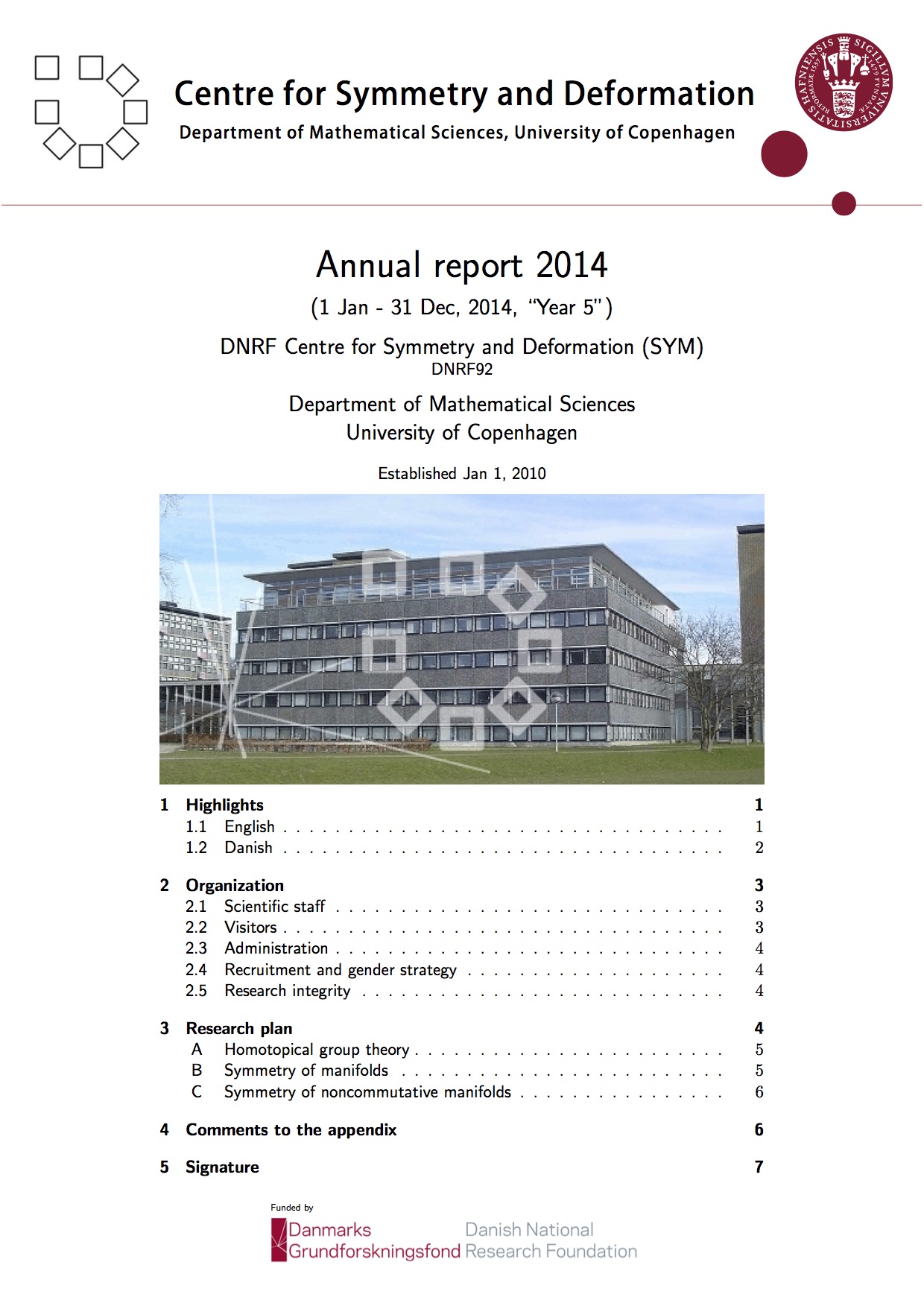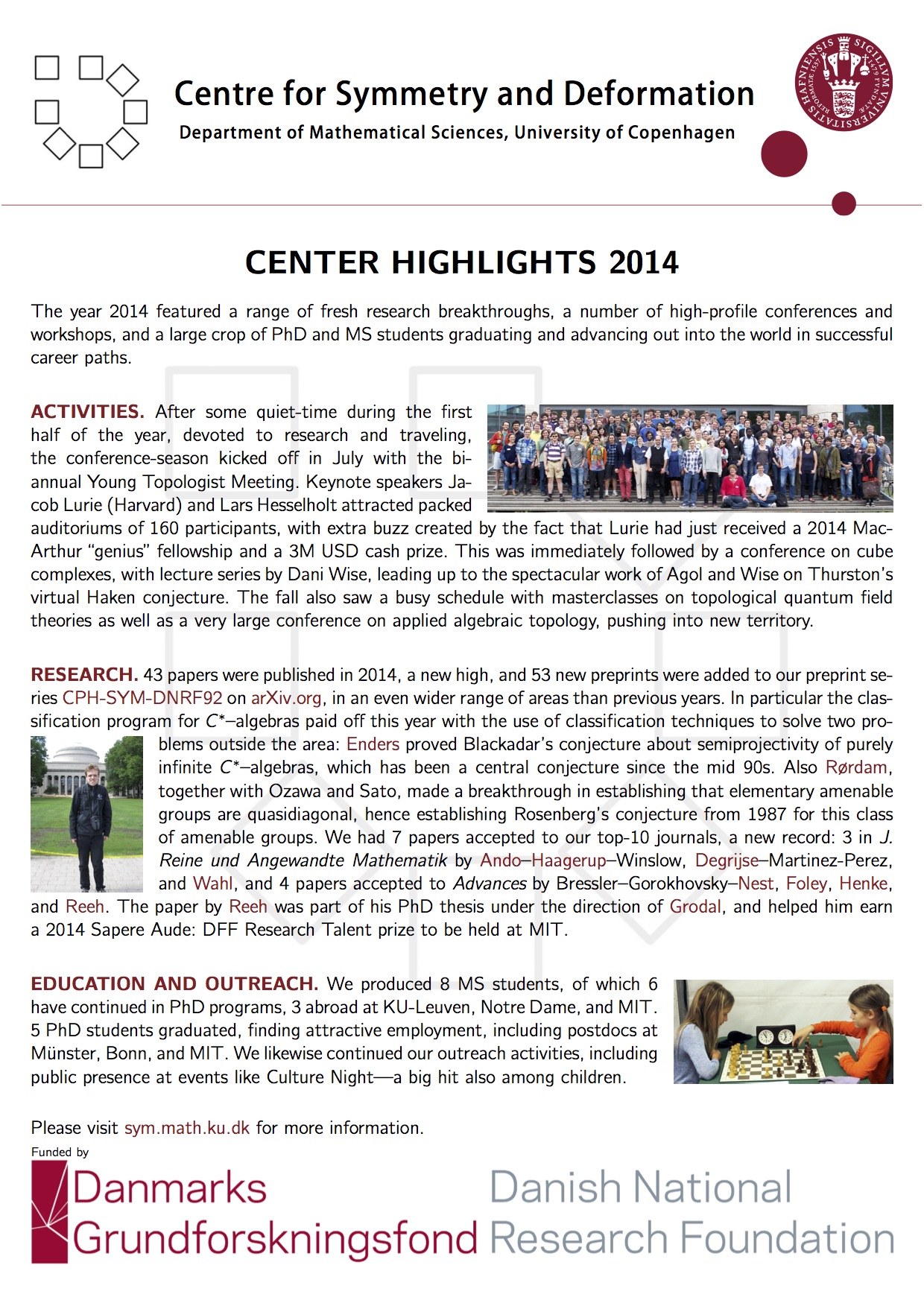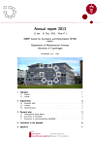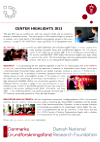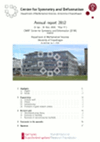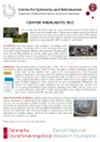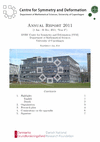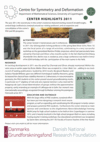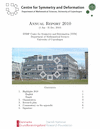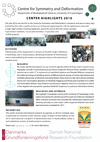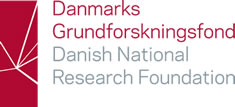
The Centre for Symmetry and Deformation is based at the Department of Mathematical Sciences, University of Copenhagen, and consists of 9 permanent faculty and around 30 postdocs and PhD-students, as well as numerous associated faculty and visitors. The center was founded Jan 1, 2010, via a grant from the Danish National Research Foundation, and is headed by Prof. Jesper Grodal.
(Please see here for contact information).
Aim and vision: The goal of the Center for Symmetry and Deformation is to understand the mathematics behind symmetry and deformation.
|
Symmetry is one of the most fundamental notions in nature: In physics it gives rise to conservation laws, in chemistry it determines the structure of molecules, and in evolutionary biology, as well as other aspects of life, it often underlies the notion of "beauty". The symmetries of a geometric object are however not stable under deformation: Whereas a perfectly round sphere has all rotational and reflectional symmetries, deforming the sphere slightly destroys these symmetries. The center aims to reconcile this, combining the mathematical disciplines of group theory and homotopy theory, including non-commutative theory, in a novel way, to study symmetry deformation-invariantly. |
- Given a geometric object, what kind of "intrinsic", deformation invariant, symmetries does it possess?
- What are the possible abstract symmetries, integrally and at a prime number p?
Our method of approach involves various notions of classifying spaces, spaces that classify or parameterize other mathematical objects, which we use to encode symmetries. We furthermore use techniques imported from number theory of studying phenomena one prime at a time.
What's the latest? At the bottom of this page you will find annual reports and other communication material. For a closer look, our preprint archive contains an up-to-date list of preprints, and our conference/workshop page lists larger events, whose webpages often contain things like scans of talks. Our calendar and guests database contains upcoming events and visitors. The center members furthermore keep personal webpages with detailed CVs etc.
If you consider taking part in our activities, it is possible to sign up for a topology and soon also a non-commutative geometry mailing list announcing upcoming seminars etc, and there is an importable version of our calendar, for convenient viewing in your favorite calendar program.
Center posters and presentations:
|

